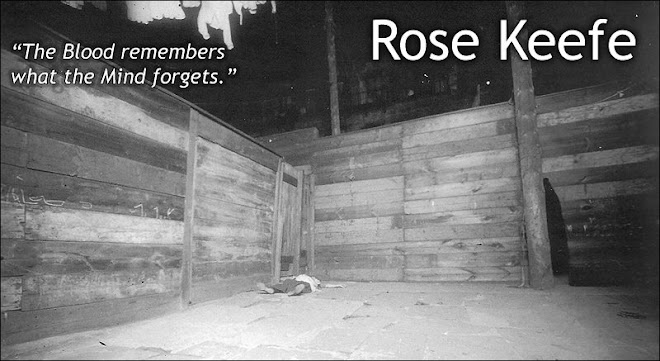 This weekend I found another true crime gem in the Internet Archive’s Open Source Books collection: The Tryal of Mary Blandy, Spinster: For the Murder of her Father, Francis Blandy, Gentleman. Years ago I read about Miss Blandy in an anthology about murderous women, but until now had never come across any primary documents about the case.
This weekend I found another true crime gem in the Internet Archive’s Open Source Books collection: The Tryal of Mary Blandy, Spinster: For the Murder of her Father, Francis Blandy, Gentleman. Years ago I read about Miss Blandy in an anthology about murderous women, but until now had never come across any primary documents about the case.Born in 1720 to solicitor Francis Blandy and his wife in Henley on Thames, Oxfordshire, Mary enjoyed advantages seldom available to women at that time: her doting father saw to it that she was well educated and did not want for anything . When her mother died and Francis Blandy did not remarry, Mary, an only child, became the sole heiress to a small fortune. Although she was intelligent, articulate, and modestly attractive, it was probably her future inheritance that attracted Captain William Henry Cranstoun in 1746 and made him propose marriage even though he already had a wife back in Scotland.
Cranstoun promised to have his marriage annulled, but Francis Blandy suspected that he was merely a fortune-hunter and objected to the match. Soon Mary received a present of Scotch pebbles (agates) from Cranstoun, along with a powder supposedly for use in cleaning them. This powder, however, ended up in Francis Blandy’s food in gradually increasing doses.
As she worked on eliminating the one obstacle to her imagined happiness, Mary was not as subtle as she thought. The servants saw her stirring something into her ill father’s tea and gruel, and observed a gritty white substance in the leftovers. They reported their suspicions to the neighbors and even Blandy himself. The aging lawyer’s response was surprisingly sympathetic: he referred to his daughter as a “poor lovesick girl” and added, “I forgive her—I always thought there was mischief in those cursed Scotch pebbles.” When he finally died on August 14, 1751, the authorities moved in and placed Mary Blandy on trial for parricide.
The trial testimony was published in pamphlet form, and is available for download. Medical authorities such as Dr. Anthony Addington (father of future Prime Minister Henry Addington) believed that Blandy had died from arsenic poisoning. When the servants testified that they had seen Mary adding a white substance to her father’s food, she and her lawyers knew that denial would be useless. So she admitted that she had done so, but argued that what she had administered was not arsenic, but a love powder intended to make Francis Blandy regard Cranstoun in a more favorable light. Cranstoun had sent it to her, she said, and if it HAD been poison, she was completely unaware of the fact.
The jury did not believe her. They agreed with the prosecution, which pointed out that even after the ‘love powder’ made her father dangerously ill, Mary did not stop mixing it in his food. While she was under house arrest pending her removal to Oxford Castle prison, she had also hinted to the servants that she was planning to flee the area, which an innocent person would not have done.
While awaiting execution, Mary wrote her own account of the tragic affair, titled Miss Mary Blandy's Own Account of the Affair between her and Mr. Cranstoun. She also exchanged letters with another condemned woman, Elizabeth Jeffries, who had killed her master with help from her lover. When a respectable matron visited Mary in her cell and gently chided her for corresponding with such a depraved person, she accepted the rebuke in polite silence but said afterward, "I can't bear these over virtuous women. I believe that if ever the devil picks a bone it is one of theirs."
On Easter Monday 1752, Mary Blandy was hanged outside of Oxford Castle prison. One of her last requests was that she not be hanged too high off the ground, “for the sake of decency.” Although most hanging victims died via slow strangulation, Mary apparently lost consciousness soon after being turned off the ladder and died without a struggle.
After Mary was convicted, William Cranstoun escaped to the European mainland, and died in Flanders on 2nd December 1752.
Mary Blandy killed for love. In the end, she also died for it.

No comments:
Post a Comment